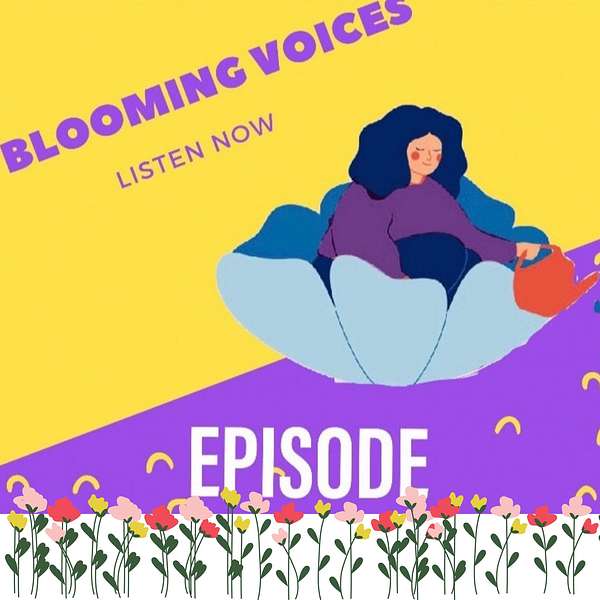
Blooming Voices Podcast
Do you listen to all the experts on podcasts and think, “no wonder they’re experts; they’re awesome, they’re smart, they’re....” Stop right there! You’re awesome!You have a story to tell, and there really is no one like you. Embrace your story. Celebrate yourself. Of course we all have room for growth, and no one is ever done growing. Just because you don’t know the answer to something today doesn’t make you a loser or does it? Naaa, of course it doesn’t! It makes you a human on life’s journey, just learning new things day to day! The more you know, the more you know what you don’t know. You're a little bud in the process of blooming... ready to share your truth and grow.Join two halves of two twin pairs as we share inspiring stories and a variety of perspectives about identity. We talk about our own unique backgrounds and how it unravels in the pursuit of finding identity, individuality, and an authentic voice. Religion, confrontations, twin questions, equality, being voice over artists, entrepreneurship, travel, movies... nothing is off limits! A true variety of topics and questions is how we grow best.
Blooming Voices Podcast
Episode 28 - Awareness of Trauma Responses
•
Jordan Drayer and Dalia Ramahi
•
Season 2
•
Episode 28
The twins discuss Dr. Nicole LePera (@The.Holistic.Psychologist on Instagram)'s definitions of common trauma responses and suggestions for healing, how different ones show up in their lives and how learning of these responses helps us all, even if we don't have them.
Takeaways
- There are different types of trauma responses that help us cope with challenging or difficult situations.
- A person isn’t all or nothing and not defined by their responses but having self-awareness can help us find healthier ways of coping. In time you’ll figure out how to change the behavior you don’t like.
- If your goal is to heal yourself, you need to dig deep into why you are triggered and understand why you react the way you do but this type of shadow work can be daunting but is essential for healing.
- Changing too fast isn’t effective; change naturally must be gradual, like a healing wound.
- There are 4 types of trauma responses (coping mechanisms). You don’t need to have experienced horrible trauma to display one or more of these responses.
- Freeze Response, Fawn Response, Fight response, Flight Response. (see link below for more info on each one).
- A person can have a combination of responses depending on their life experiences.
- Be gentle and kind to yourself while you focus on healing yourself.
- Labels like good or bad, right or wrong, don’t have power in themselves. We give them power. You have the right to drop a label any time you choose.
- You don’t owe anyone an explanation for why you say no, why you do what you do.
- Remember: You decide what you think about. You are the one that decides what you think of yourself and whether you give your power away or not.
- If society is telling us to hate/like something, you don’t have to also unless you really do hate/like that thing.
- These healing journeys take a long time - read different things to learn about yourself, try new things.
Links
- Posts on Trauma responses can be found here: https://www.instagram.com/the.holistic.psychologist/
- Holistic Psychologist depiction for each response:
- https://www.instagram.com/p/CbWEXMoF05-/
- Fawn Trauma response: https://www.instagram.com/p/CTw_nUglQW7/
- Freeze Trauma response: https://www.instagram.com/p/CTxcHeoPw_y/
- Fight Trauma Response: https://www.instagram.com/p/CTzwkg-p5t1/
- Flight Trauma Response: https://www.instagram.com/p/CTzg_HnFrhY/
Socials
- Instagram - https://www.instagram.com/bloomingvoicespodcast/
- Twitter - https://twitter.com/VoicesBlooming
- Email - bloomingvoicespodcast@gmail.com
- Website - https://www.bloomingvoices.com/